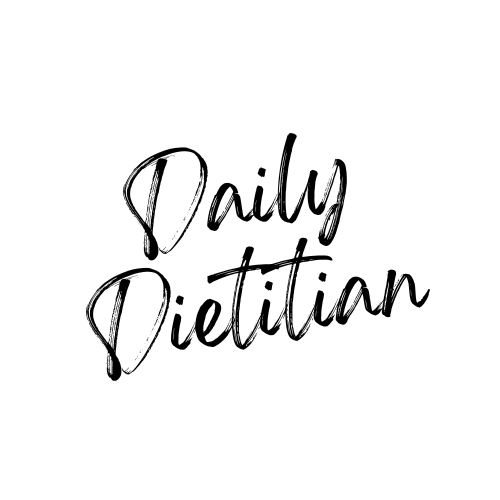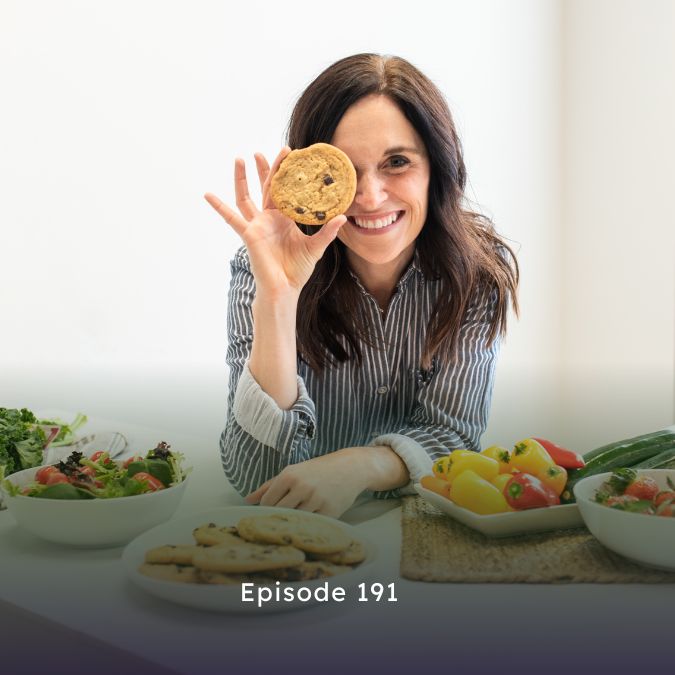Welcome to The Daily Dietitian Podcast! I’m your host, Stacy Mitchell, and I’m so glad you’re here. With thousands of podcasts available, I truly appreciate you choosing to spend your time with me. Today, we’re diving into popular diet trends, wellness fads, and misleading health advice that should be left behind for good.
At the start of every year, new diet trends flood our social media feeds, promising quick fixes and miracle results. But many of these fads are not only unsustainable, but they can also do more harm than good. Let’s break down some of the most common ones and, most importantly, discuss what to do instead for long-term, sustainable health.
1. Cleanses and Detoxes: Do You Really Need Them?
Cleanses and detoxes claim to “flush out toxins” and reset your body. Sounds tempting, right? But here’s the truth: Your body already has an amazing built-in detox system—your liver, kidneys, and digestive system work 24/7 to keep you in balance.
Red Flags to Watch For:
- Extreme calorie restriction
- Expensive supplements, teas, or juices
- Vague claims about “flushing toxins” without specifying which ones
What to Do Instead:
Support your body’s natural detox process by eating a balanced diet full of colorful foods, fiber, and plenty of water. Avoid ultra-processed foods and excess added sugar while still enjoying all foods in moderation.

2. Whole30 and Other Restrictive Diets
The Whole30 diet eliminates dairy, sugar, alcohol, grains, legumes, baked goods, pasta, and more for 30 days. While it may seem like a healthy reset, it’s really just a form of restrictive eating disguised as wellness.
The Problem?
- Cutting out entire food groups without a medical reason can create unnecessary stress and an unhealthy relationship with food.
- Stress increases cortisol levels, which can actually lead to weight gain, especially around the belly.
- You may miss out on key nutrients like fiber from whole grains or plant-based protein from legumes.
What to Do Instead:
Rather than following a rigid set of rules, focus on balanced meals that include protein, fiber, and healthy fats. Eating a variety of whole foods will support your health without unnecessary stress.

3. GLP-1 Medications for Vanity Weight Loss
GLP-1 medications like Ozempic and Wegovy were originally designed to help manage type 2 diabetes and obesity. But lately, they’re being marketed as quick weight loss solutions—even to people who don’t medically need them.
Concerns:
- These medications can have side effects like nausea, vomiting, and nutrient deficiencies.
- They don’t address the root cause of unhealthy habits or promote long-term sustainable behavior.
- Rapid weight loss from these medications often includes muscle loss, which we want to avoid as we age.
What to Do Instead:
Focus on building sustainable habits that support metabolic health, such as regular physical activity, stress management, and balanced meals. If you’re considering medication, consult a healthcare professional for personalized guidance.

4. Intermittent Fasting: Is It Really for Everyone?
Intermittent fasting has gained popularity as a weight loss and wellness strategy, but it’s not for everyone. Some people may experience obsessive thoughts about food, bingeing, or nutrient deficiencies.
Red Flags to Watch For:
- Feeling guilty or anxious when eating outside the fasting window
- Ignoring natural hunger signals
- Experiencing fatigue or mood swings due to lack of fuel
What to Do Instead:
Rather than rigid fasting schedules, focus on mindful eating. Listen to your body’s natural hunger and fullness cues, and prioritize balanced, satisfying meals.

5. Drinking a Gallon of Water a Day: Necessary or Overkill?
The trend of drinking 128 ounces (a full gallon) of water daily has gained popularity. While hydration is important, forcing excessive water intake can be harmful.
Potential Risks:
- Overhydration can dilute sodium levels, leading to hyponatremia (low sodium levels), which can cause dizziness and swelling.
- Drinking too much water can put unnecessary stress on your kidneys.
What to Do Instead:
Listen to your body’s thirst cues and adjust your intake based on factors like activity level, climate, and diet. Remember that fruits, vegetables, and other beverages also contribute to hydration.

6. Supplements and Green Powders: Are They Worth It?
Supplement companies often market green powders as a replacement for fruits and vegetables. While they can be convenient, they are not a substitute for whole, nutrient-rich foods.
Red Flags to Watch For:
- Claims of “miracle” health benefits
- Expensive price tags without solid scientific backing
- Products that lack transparency in ingredient sourcing
What to Do Instead:
Prioritize real, whole foods in your diet. If you choose to take supplements, opt for third-party tested products and consult a healthcare professional to determine what’s truly necessary.

Final Thoughts
When it comes to health, there are no quick fixes or magic solutions. Instead of falling for restrictive diets, detoxes, or extreme trends, focus on long-term habits that support your well-being. Sustainable health is about balance, nourishment, and listening to your body.
If you found this helpful, be sure to subscribe to The Daily Dietitian Podcast for more practical nutrition advice and wellness tips. Let’s make 2025 the year of sustainable, stress-free health!





